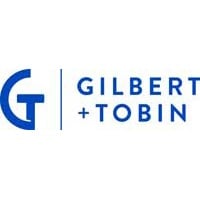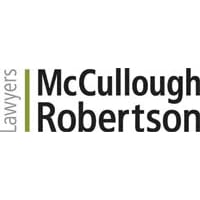

Vice president legal, Australia and New Zealand | Carlton & United Breweries





Zoe Solomon
Vice president legal, Australia and New Zealand | Carlton & United Breweries
The A$16bn acquisition of Carlton & United Breweries by Asahi Group Holdings, (subject to customary regulatory approvals), the acquisition and integration of 4 Pines Brewing Company by Carlton & United Breweries and the acquisition and integration of Pirate Life Brewing by Carlton & United Breweries, amongst several others.
Provide legal and strategic contributions when trying to achieve a particular business objective. In addition to technical legal knowledge, in-house lawyers need to display commercial acumen and a natural curiosity so they can add value beyond simply opining on a technical legal question.
Make joint decisions with stakeholders and own any consequences which flow from those decisions. Use language such as “this is what I would do”, instead of giving a risk rating and requiring “the business” to make the final call alone. This also means no specific person or function is blamed for making the wrong call – legal shares the risk with the rest of the business.
Prepare to be in the trenches with your stakeholders. When business partners are challenged during a crisis, they want to know legal will be right alongside them.
I believe the automation of legal work will continue to accelerate. This will reduce time lawyers spend on lower risk activities such as document production and standard approvals. I also believe we’ll see more examples of AI deployed to solve legal problems. However, I believe as the amount of human-led prep work decreases, there will be a rise in demand for senior lawyers to make judgment calls where things are ambiguous, such as at the peak of a particular problem or project. There will always be a need for the expertise that only senior lawyers can provide.
Lawyers can learn a lot from our marketing colleagues about getting the most out of our partners outside the business. This includes creating inspiring briefs that give context to help external counsel deliver powerful ideas and solutions. The brief is extremely important as you only get out what you put in.
Never shut down ideas before giving them the consideration they deserve. Be conscious of personal biases and probe to fully understand all angles before providing constructive feedback to external counsel. Treat your external counsel as extensions of you team and cultivate an environment where the team feels motivated to share ideas. It is in environments such as this that solutions flourish. Also, the best legal solutions are iterative. They grow and evolve, with the support of multiple inputs.
In-house legal teams should focus more on results-based working to give women more control of their time. This is different to the ordinary flexible-work model. Work doesn’t need to be a physical place you go to each day. It need only be something you do. If the focus narrows to results, it doesn’t matter where or how it gets done.
We also need to see broader uptake of leave arrangements no matter the gender or life stage of an employee. Leaders must set the example on this front whether that be taking sabbaticals, parental leave, domestic violence leave or other time away from work that is required. And it’s critical that businesses constantly analyse these policies and their effect on recruitment, promotion and retention rates to ensure they work.
The global brewing industry has consolidated in the past decade, leading to major changes in Australia and beyond. Corporate restructures can have a life-altering effect on employees. And the more senior your role, the more likely you are to experience the very best or worst of these effects.
This is particularly true of senior legal counsel. There is often no team closer to the cut-and-thrust of the decision-making. But when the process is complete, our teams can often be drastically altered.
Despite this, it is critical that senior counsel lead by example during times of change. A failure to maintain a positive approach will cascade throughout your team. And a legal team’s central role means this lack of composure can have a radiating effect.
It can be difficult to stay focused in the face of enormous organisational change. But I have learned that good leadership is having the courage to act in business’ long-term interests. Making tough calls can be difficult until you realise that a passive approach that does not take ownership of the final call is in fact a decision in itself.
This applies both during times of change and more generally. Sometimes the most important lessons a leader can learn come in the form of what-not-to-dos. I have seen leaders at other places demand team members stretch themselves enormously at short notice, only to then sit on the work for a week. What sort of message does this send?
One of the hardest leadership lessons I’ve learnt is letting go of doing everything myself. Like any general counsel, I have a clear idea of the outputs I want and how I want them achieved. But if I do not let my team make mistakes, they will never learn and have the confidence to aim higher next time.
I’ve also learned that not everyone wants to be led like I do. I now know that good leadership is considering how to get the best out of individual team members.
Ultimately, every great leader has a visionary style that allows them to identify future potential and put in place a plan to get there. But the best laid plans will go awry without the maintenance and nurturing of a culture that gets the most out of people. Every general counsel knows they are only as good as the team supporting them.
Whether it’s navigating through significant change or simply helping drive business performance, leading by example helps build a culture to give your team the best possible chance of success.